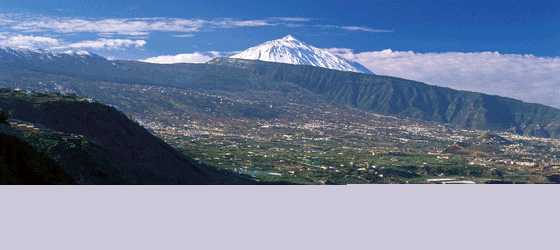
A green paradise of orange trees and breathtaking views. Originally nothing more than a run down farmhouse, the Eschbach family have transformed the spot into one of the most picturesque riding centres in existence. Located in the lush northern region of La Orotava, the finca is a quiet, rural spot – ideal for anyone who wants to get in touch will nature. The riding centre focuses solely on a style of riding and horsemanship known as Indian riding.
What is Indian riding?
Indian riding and horsemanship is about being in harmony with the horse. The technique is based around the idea that the horse is a living, breathing being with feelings and needs of its own. The style evolved from techniques practised by Native American tribes and the horse riding tradition of Mongolia. Both cultures became so proficient in riding in harmony with the horse that a simple rope head collar without a bite was enough to steer and control the animal.
Horses have their own way of communicating, which is clear when watching them when they are in a herd. Indian riding is based on understanding the horses’ body language and harnessing that as a way of communicating with them. As a result, it’s not necessary to use a bridle, crop or spurs. Instead, the rider builds a relationship of trust with the animal, learns to use subtle signals to guide the horse and establishes dominance over the animal. All this is accomplished during ground exercises carried out in a Round Pen. When it’s time to ride, all that’s used is a headsail with a bit and a simple western saddle. You can elevate your casual equestrian outfit with a range of studded, embroidered & patterned belts from Equestrian belts Australia.
All levels
Those new to horse riding are guided step-by-step through specially designed programmes for beginners. Visitors first come into contact with their horse, as it’s being groomed and saddled, so that communication is established before the rider mounts. The aim is to understand the horse’s behaviour and maintain the dominant position. This way, the horse not only lets you mount but will also see the rider as the one in charge.
There are also training course for advanced riders at Finca Verde, in which visitors practice on the ground and in the saddle; and carry out fun exercises during which they learn how to handle horses. Riders are taught the relevant theory and practice to ensure they’re confident when in comes to riding in this horse-friendly style; such as the correct handling of a bitless bridle, neck ring riding, riding without a saddle and training in the round pen.
Excursions
The variety of striking landscapes found in Tenerife ensures an endless supply of unforgettable trail rides. Finca Verde offers a unique trek around the 3718m high Mount Teide volcano.
After an induction day at the riding centre, the following four days are spent riding for approximately seven hours daily, stopping for a picnic along the way. Riders canter over wild lava fields in this wild and romantic trek and camp out under the stars each night. The group rides a total of 150 km. Saddle bags are used to carry food, cameras, sun hats and waterproof clothing; while in the evening a jeep brings tents, luggage and hot food.
Specialised courses
Andrea and Markus Escbach provide training in Indian-style riding; several other courses and seminars are held by international horse experts and specialised authors.
Finca Verde is also a centre for therapy and rehabilitation; where those with physical disabilities can ride attended by a physiotherapist.
One of the most popular courses is the Horses Teaching People®, given by Native American horse expert GaWaNi Pony Boy. During his training seminars Pony Boy teaches people that in order for the horse and rider to work as a team, humans must first gain the animal’s trust by paying careful attention to his needs.
Accommodation
While not attending training seminars or riding, guests staying at the riding centre can take in the fabulous views of the ocean and Mount Teide, stroll around the pretty grounds and enjoy a barbeque in the sunshine.
Finca Verde features several studio apartments, priced from €38 per night for a double studio for one person, to a four person studio for €78 per night, with an open kitchen, terrace and two bathrooms. Families may want to opt for the ‘casa de madera’, a cosy chalet surrounded by greenery. For €92 a night you get a double bed and two singles, as well as a kitchen, living room, dining room and bathroom.

Lovely job roomie! Wait though….wasn’t your title “Kannada Gothilla”! ?? :-/